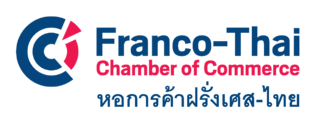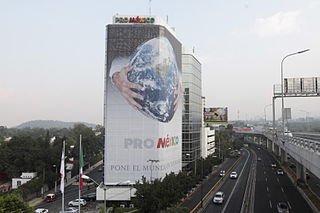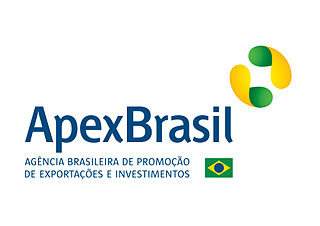Related Research Articles

The economy of Kazakhstan is the largest in Central Asia in both absolute and per capita terms. Kazakhstan has attracted to 2021 more than US$370 billion of foreign investments since becoming an independent republic after the collapse of the former Soviet Union.
A special economic zone (SEZ) is an area in which the business and trade laws are different from the rest of the country. SEZs are located within a country's national borders, and their aims include increasing trade balance, employment, increased investment, job creation and effective administration. To encourage businesses to set up in the zone, financial policies are introduced. These policies typically encompass investing, taxation, trading, quotas, customs and labour regulations. Additionally, companies may be offered tax holidays, where upon establishing themselves in a zone, they are granted a period of lower taxation.
Global Affairs Canada is the department of the Government of Canada that manages Canada's diplomatic and consular relations, promotes Canadian international trade, and leads Canada's international development and humanitarian assistance. It is also responsible for maintaining Canadian government offices abroad with diplomatic and consular status on behalf of all government departments.

Financial services are economic services provided by the finance industry, which together encompass a broad range of service sector firms that provide financial management, including credit unions, banks, credit-card companies, insurance companies, accountancy companies, consumer-finance companies, stock brokerages, investment funds, individual asset managers, and some government-sponsored enterprises.
The Australian Trade and Investment Commission, or Austrade, is the Australian Government's trade, investment and education promotion agency which was also given responsibility for tourism policy, programs and research from 2013. Austrade was established under the Australian Trade Commission Act 1985. It is a non-corporate Commonwealth entity under the Public Governance, Performance and Accountability Act 2013, and a statutory agency under the Public Service Act 1999. Austrade is part of the Foreign Affairs and Trade portfolio.
Economic liberalization, or economic liberalisation, is the lessening of government regulations and restrictions in an economy in exchange for greater participation by private entities. In politics, the doctrine is associated with classical liberalism and neoliberalism. Liberalization in short is "the removal of controls" to encourage economic development.

The United States Commercial Service (CS) is the trade promotion arm of the U.S. Department of Commerce's International Trade Administration. CS is a part of the U.S. Foreign Service and its commercial officers are diplomats. The CS global network of trade professionals helps thousands of U.S. companies to export goods and services worth billions of dollars every year. CS trade specialists are located throughout the United States, as well as in U.S. embassies and consulates in over 75 countries around the world. The mission of CS is to advance and protect strategic U.S. commercial and economic interests around the world.

India Brand Equity Foundation (IBEF) is a Trust established by the Department of Commerce, Ministry of Commerce and Industry, Government of India. IBEF's primary objective is to promote and create international awareness of the Made in India label in markets overseas and to facilitate the dissemination of knowledge of Indian products and services. Towards this objective, IBEF works closely with stakeholders across government and industry.

The International Trade Centre (ITC) is a multilateral agency which has a joint mandate with the World Trade Organization (WTO) and the United Nations (UN) through the United Nations Conference on Trade and Development (UNCTAD).
SelectUSA is the U.S. federal investment promotion agency, facilitating job-creating business investment into the United States and raising awareness for the role of economic development in the U.S. economy.

Foreign direct investment in Iran (FDI) has been hindered by unfavorable or complex operating requirements and by international sanctions, although in the early 2000s the Iranian government liberalized investment regulations. Iran ranks 62nd in the World Economic Forum's 2011 analysis of the global competitiveness of 142 countries. In 2010, Iran ranked sixth globally in attracting foreign investments.

UK Trade & Investment (UKTI) was a UK Government department working with businesses based in the United Kingdom to assist their success in international markets, and with overseas investors looking to the UK as an investment destination. It was replaced in July 2016 by the Department for International Trade.

Invest Northern Ireland is Northern Ireland's regional economic development agency. It is a non-departmental public body (NDPB) of the Department for the Economy (DfE). According to DETI's website, it "supports business growth and inward investment, promotes innovation, research and development and in-company training, encourages exports and supports local economic development and company start up."
CanadExport is a Canadian government publication and the official bulletin of the Canadian Trade Commissioner Service (TCS)—a core operation of Canada's Federal Department of Foreign Affairs and International Trade. Based in Ottawa and published online bi-weekly in both English and French, CanadExport is a source of trade-related news, events, advice, and opportunities for Canadian businesses interested in the international market.
Established in 1993, the Investment and Development Agency of Latvia (LIAA) acts under the Ministry of Ministry of Economics of the Republic of Latvia.

Founded in 1966 by French entrepreneurs, the Franco-Thai Chamber of Commerce (FTCC) is today one of the most dynamic European chambers in Thailand with over 315 members, with business interests in France and Thailand, and more than 60 events organized every year.

ProMéxico was a trust fund of the Federal government of Mexico —a subdivision of the Secretariat of Economy— that promoted international trade and investment. ProMéxico used to be in charge of the country's active participation in the international arena by firmly establishing Mexico as an attractive, safe and competitive destination for foreign investment; encouraging the exportation of national products and supporting the internationalization of Mexican companies; providing specialized advisory services to boost the export of products and services and increasing the presence of Mexican businesses abroad, and guiding the attraction of foreign direct investment (FDI) into the country.
The Canada–Peru Free Trade Agreement (CPFTA) is a free trade agreement between Peru and Canada. It was signed on 29 May 2008 and entered into force on 1 August 2009.
The Global Markets Action Plan (GMAP) was Prime Minister Stephen Harper's government strategy to generate employment opportunities for Canadians by expanding Canadian businesses and investment in other countries in a highly competitive global environment.

The Brazilian Trade and Investment Promotion Agency, or ApexBrasil is both the trade promotion organisation (TPO) and the investment promotion agency (IPA) of Brazil. Founded in 1997 as a subsidiary of the micro and small business support organisation SEBRAE, ApexBrasil became in 2003 an autonomous non-profit entity funded by the private sector and supervised by the Federal Government of Brazil. Formally linked to the Foreign Ministry since 2016, it promotes Brazilian products and services abroad, attracts foreign direct investment and supports national companies, especially small and medium-sized, on their international journey. Through its programmes and services, ApexBrasil supports approximately one third of Brazil's annual exports and contributes to facilitate at least one fourth of its foreign direct investment (FDI) inward flows each year. More than 15 thousand Brazilian companies are directly supported by the agency, virtually all of them micro, small or medium-sized.
References
- ↑ Library and Archives Canada brief history of the Trade Commissioner Service. [ permanent dead link ]
- ↑ "The Canadian Trade Commissioner Service Website".
- ↑ Archived 2009-03-22 at the Wayback Machine Invest in Canada